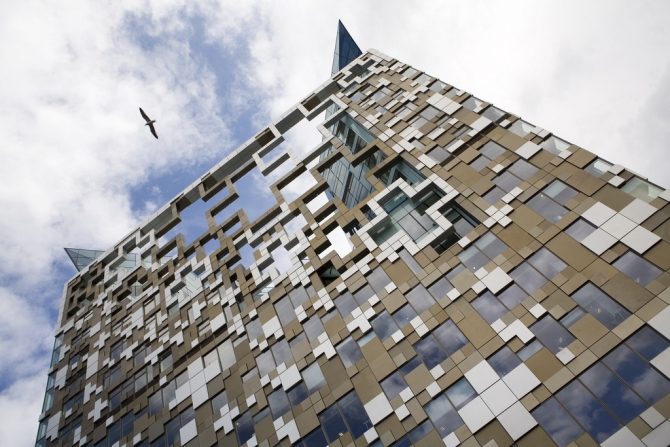The HS2 high speed rail link is one of the most significant infrastructure projects to take place in the UK for some time, and its presence in Birmingham is expected to boost the local economy thanks to a speedier link to London. However, Birmingham is already benefiting from the effects of the rail link thanks to the uptake of Grade A office space within the city by the company behind the development.

According to associate director Andrew Berry of property services firm DTZ’s office agency team in Birmingham, the 100,000 sq ft of Grade A office floor space take up by the HS2 operation at 2 Snowhill has massively improved the chances of the city meeting its annual office take up average for the current fiscal year.
During the first half, office take up in central Birmingham reached only 216,000 sq ft, meaning that there is quite some making up to do in the second half to reach the 625,000 sq ft which is the long term annual average.
But the large scale take up by the HS2 developers has also thrown into sharp focus an issue which is currently plaguing a number of large business centres throughout the UK – a shortage of available commercial space. As the HS2 project draws closer, Mr Berry forecasts that the resulting uptake in Grade A office space will deplete the supply of this sector to the lowest levels since 2003.
He says; “At current Grade A take up levels there is just 18 months of Grade A accommodation remaining with approximately half of this located in Colmore Plaza.
“This supply and demand dynamic will see diminishing incentive levels and increasing rents that will enable speculative development to start again in Birmingham.”
The plunge in speculative development projects, triggered by the onset of the financial crisis, has been a major source of concern for professionals concerned about building upon the country’s economic growth momentum.
As companies continue to invest in expansion, they are being increasingly forced to look outside traditional business hotspots such as central London and Birmingham, in part due to the lack of available space and the steadily increasing rents as a result of this shortage.
With this in mind, DTZ’s data also showed that a large proportion of lettings during the first half concerned Grade B office space which, thanks to the lower rental costs and more plentiful supply, is now being sought after by numerous companies. Yet DTZ believes that, should the supply of Grade A office space be replenished through development projects, this trend could very well change.
As occupier sentiment within Birmingham continues to improve and result in more successful lease deals being signed, it seems that the Midlands city is well positioned to capitalise on the predicted business boom which will come with the arrival of HS2.
However, with a shortage of speculative development projects in the pipeline at present, it could be that a lack of supply, rather than a lack of demand, is the factor limiting the growth of the commercial market in the future.
Yesterday’s news that the first phase of the Arena Central development is poised to get the go-ahead will be welcomed by Birmingham property professionals and the business community.
When it is completed in 2016, 1 Arena Central will provide 135,000 sq ft of Grade A office space and 5,000 sq ft of ground floor retail space. In total, Arena Central will add 860,000 sq ft to Birmingham’s Grade A office stock. (ed)